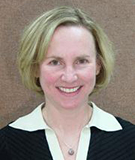More of us need help. Why is it so hard to ask for, and how can we make it easier?
adrianaThe reluctance to reach out for help is a common tendency, but it’s an important one to unpack during a pandemic. How can we make that easier?
The first step is to understand why it’s so hard to reach out.

Requesting assistance is also uncomfortable because it’s “an admission that you’ve lost control of your situation,” says Craig Parks, a professor of social psychology and a vice provost at Washington State University. “We really need to feel, at all times, like we control our situations and can determine what happens to us.”
Plus, it creates a feeling of indebtedness — you helped me, so now I owe you — even if the helper doesn’t expect this, Parks says. “Socially, there’s still going to be a lot of pressure on you to reciprocate in kind.”



